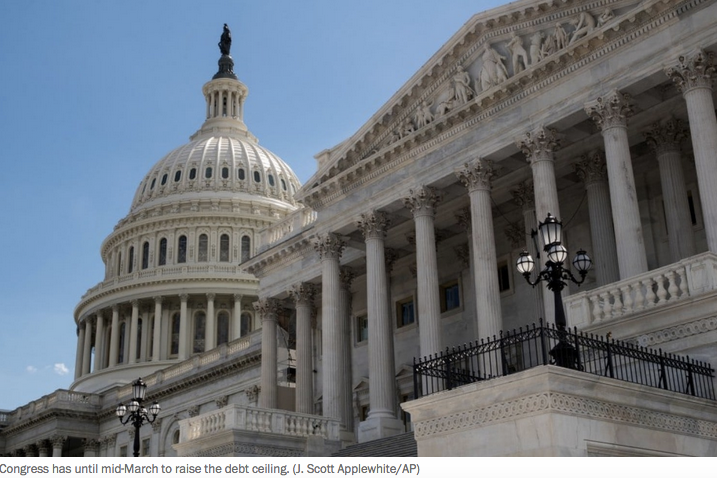The U.S. government’s cash reserves are expected to run out faster than expected, the Congressional Budget Office said Wednesday, a result of lost revenue from last year’s tax cut law.
If the debt ceiling isn’t raised by the first half of March, CBO said, “the government would be unable to pay its obligations fully, and it would delay making payments for its activities, default on its debt obligations, or both.”
The White House and GOP leaders in Congress have repeatedly punted decisions on how to deal with the debt ceiling. This is in sharp contrast to the approach Republicans took during the Obama administration, when the GOP insisted on deep spending cuts in exchange for any vote to raise the debt ceiling.
The debt ceiling had been suspended until Dec. 8, 2017, and the Treasury Department has taken emergency steps since then to delay falling behind on payments. But it can only use those measures for a short period of time, and CBO said Wednesday that this window is narrower than it previously thought.
Lawmakers are already facing a government shutdown deadline Feb. 8 and are struggling to cut a deal on immigration before work permits for young immigrants brought to the United States illegally as children begin to expire in early March.
The timelines for all these must-do tasks are beginning to converge, raising the possibility of one enormous deal in coming weeks wrapping all the issues up. For now, though, solutions look remote.
CBO said that the tax law is expected to lower tax receipts by $10 billion to $15 billion per month. Even though the tax cut law went into effect January 1, the large drop in tax receipts didn’t kick in yet because companies won’t start using new withholding tables until sometime in February.
“Withheld receipts are expected to be less than the amounts paid in the comparable period last year,” CBO said. “In addition, the government ran a deficit of $23 billion in December, and it normally runs a deficit in the second quarter of the fiscal year.”




